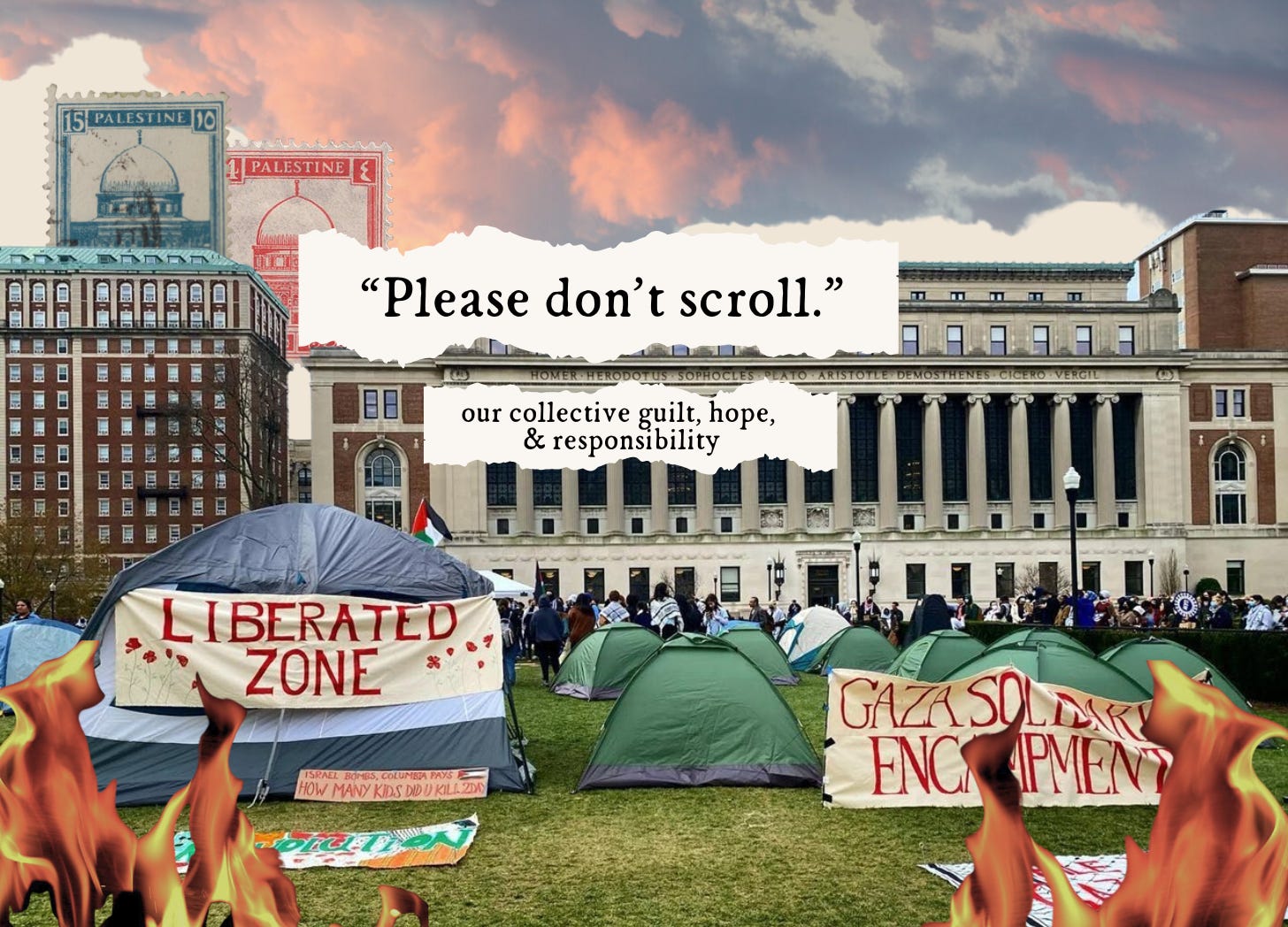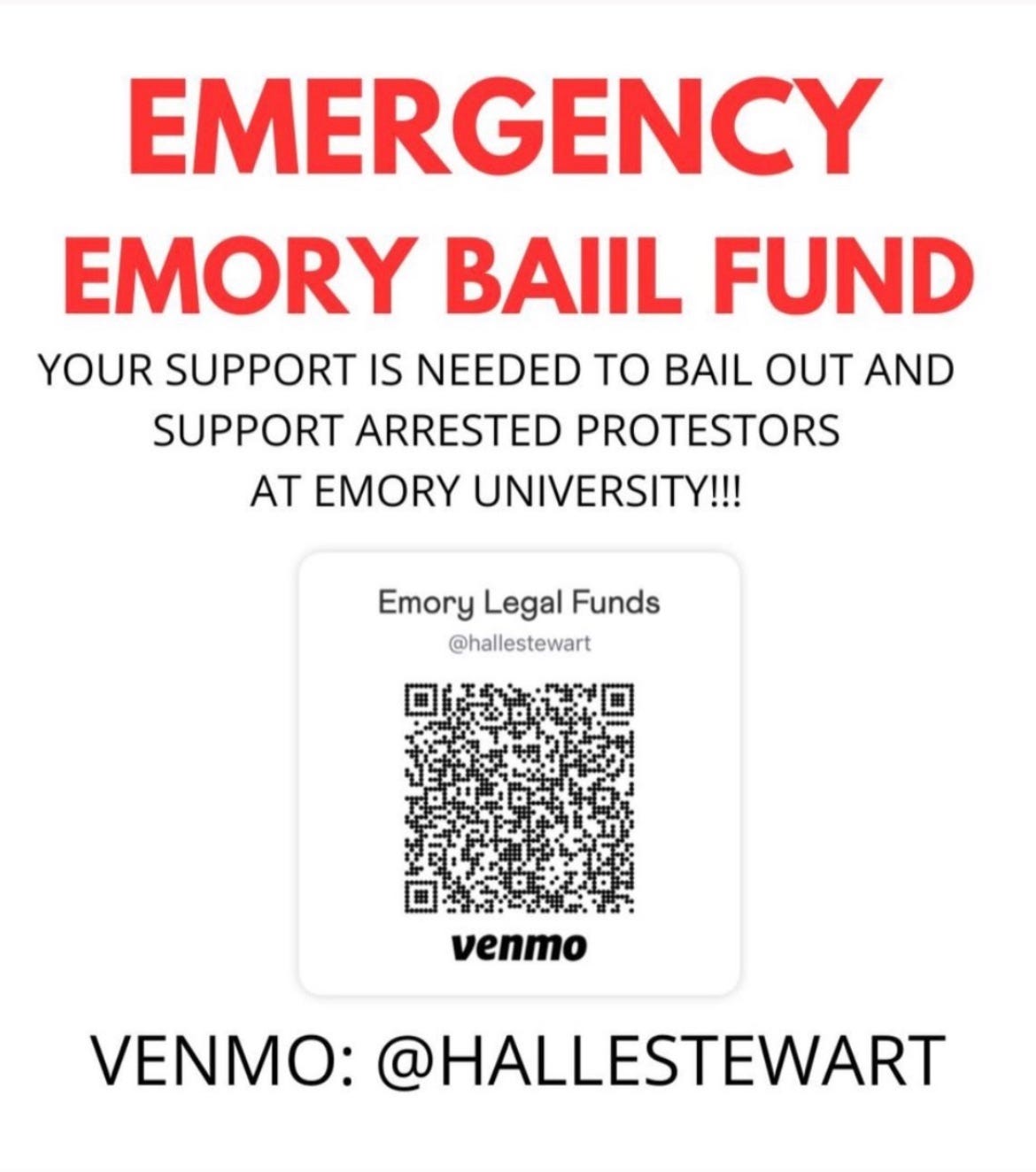Dear friend—
I’ve managed to cut my Tik Tok habit down tremendously. I’m not saying this to feel superior; I’m not sure about yours, but my algorithms have been filled with content about Palestine. Independent news organizations reporting on the air strikes and starvation, content creators adding to the discourse on the rise in fascism in the US as it relates to the alliance with Israel, and Gazans showing us their inhumane living conditions. The heaviness of the content was not the escape I was looking for, and so I tried to escape in other ways (aka scouring the internet for every niche tv show I could find).
Although I am embarrassed and ashamed that I have been “escaping” in these ways, I won’t hide it. Still, I can’t not keep up with what’s going on, so I look to social media for daily updates and a reminder of the suffering this country is helping sustain.
Spare change from a disappearing middle class
There is a certain type of video that is becoming more and more frequent on Tik Tok. They always start the same: there is an annoying buzzing in the background, and someone is speaking to the camera directly, saying, “Please don’t scroll.” Palestinians in Gaza are on the app promoting their GoFundMe links like it’s a full time job, asking for our donations, shares, and prayers so they can evacuate Gaza. Children can leave for $2,500 and adults can leave for $7,000-$10,000. I also see Western creators continuously promote GoFundMe links for families, taken from the Operation Olive Branch account which has a transparent and detailed spreadsheet of families searching for safety.
I press the video to watch in 2x speed, ignoring my own pain and discomfort, reminding myself that these are real people who are experiencing this in real time. I like, share, save, copy the link, and sometimes comment on the video, hoping it reaches someone with money to spare. Often I’ll check the link in their bio to see how much money they need until they reach their goal, and then scroll down the page to find the top donation. I feel a little relief when I see a donation of $1,000 or more. Good, there are some people who have the means to help. Not everyone is as broke as me, and I’m glad to see it.
It is not lost on me the painful truth of the matter: our taxes are being used to help the enemy, and now we’re the only ones who can send spare change to help families reach safety—which also puts them at risk of being permanently displaced.
After 15 minutes, I can’t take anymore. I put my phone down and stare at the wall or ceiling, instantly feeling guilty that I can escape from the reality that other people are living in constantly. My mind tries to find some other way I can be of use. I usually can’t think of anything.
This little bit of time on Tik Tok is enough to keep Palestine in my thoughts. Not that it ever really leaves…there seems to always be a little corner of my mind reserved for Gaza, 200 days of grief simmering under the surface of all thoughts.
I’m sure this is the same for most of us. But it is very apparent that Tik Tok, aside from the useless content and dopamine-destroying side effects, is a gathering ground for people to share information, think critically, discover updates, and help others. It’s no wonder that Biden rushed to sign the bill to ban the app, neglecting the other very real issues with this country.
Consumption, creation, coverage
I won’t try to predict what will actually happen with the app, and I’m not going to worry too much about it either. But it has got me thinking about the ways in which younger generations consume content, and therefore information. Our attention spans are failing, literacy rates are plummeting, and higher education is declining in public opinion, affordability, and practicality.
The recent encampments for Gaza on 30+ university campuses, most notably Columbia and University of Texas at Austin, have shown a wide disparity between the values of young people and the interests of these profit-first institutions. Even more harrowing are the quickly escalating incidents of police brutality that echo past student protests for human rights, as well as the BLM movement in 2020. Without the social media coverage of these events, it would be difficult to get a good look at what’s happening on the ground—the dancing in solidarity, sharing of stories, encouraging speeches, peaceful vigils, and of course, the unprovoked violence from cops.

This brings me back to the practice of documentation. Social media is a great method for the spread of it, but the platforms are not totally within our control. What would happen if they were to become more heavily censored, or to vanish completely? And what is the benefit of the spreading of ideas if we fail to truly understand them or put them into practice? Substack appeals to me because it provides more ownership over one’s audience; an email list is like a gathering place for longform ideas and conversation. I feel this need to capture these events and the collective feelings surrounding them, as if I am afraid they will disappear from our memories and history will repeat, as it always does.
Mostly I am interested in being committed to our own self-education, to reclaiming our attention spans, to reading more, writing more, and discussing more.
What do you think?
Choose your own adventure: Heaven or Hell?
I am proud that the majority of the world is on the side of Palestinians, and that humanity is pushing hard against the thick shell of racist, evil greed. We are all waking up to the importance of Landback movements, of indigenous wisdom and humanity’s responsibility to the earth. Sometimes, I feel hopeless, like we really are in the darkest timeline and maybe we won’t liberate ourselves. Maybe the world will be run by fascists forever or until Mother Earth decides it’s our time to go.
But even if this is the case, I keep coming back to Don Miguel Ruiz’s philosophy on heaven and hell in The Four Agreements, which explains that they are not what we experience in the afterlife, but rather what we experience now. For all the suffering in the world, I think maybe humanity is paying a price for all of our past evil. Collectively, we have allowed the world to get to this point. We must all take accountability for our part in that, which includes what we are doing and thinking now, and exists in the details of how we live.
So yes, it’s easy to feel like we are in the darkest timeline, and things are only going to get worse. I spiral into this particular brand of despair often, and have to dig my way out over and over again, but the answer is always the same: hope, although it at times feels like delusion, is what breeds the strength to keep going. Intentionally depriving yourself of hope is unproductive and useless.
I tell myself this: hope that liberation is possible, and that a better world can emerge from this one, is the only way to live. This hope, combined with the responsibility for each other and our land, is the most sustainable method for intentional living in a current society that wants us to bend to its inhumane will.
This doesn’t answer all the questions I have, like “how do I dedicate my life to this cause?” “What is my place?” and “how can I sustain myself in this work?” It doesn’t explain why good people are suffering now, or if God exists, or what the path forward looks like. But it calms me enough to take it one step at a time, and to commit to the journey of figuring it all out, and trying to be a decent person in the process.
Thanks for reading this week! Here are some resources:




I love your human & earth centered commitment to writing about justice, peace, and a better world. You take the angsty and existential thoughts we all have and ask questions that can help us reframe and better understand the roles we can all play in our collective liberation. Thank you.